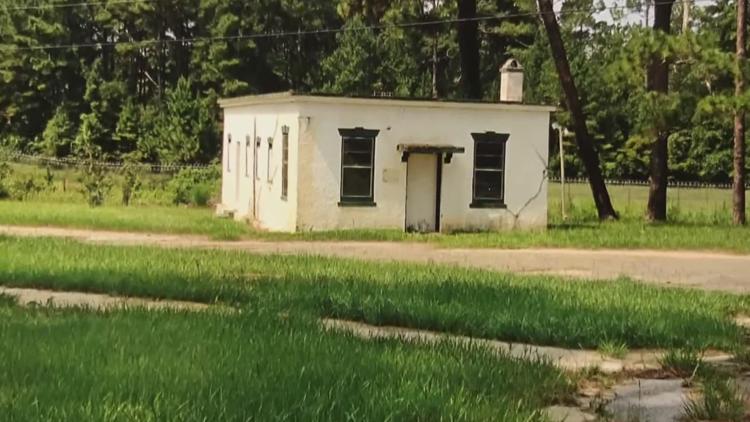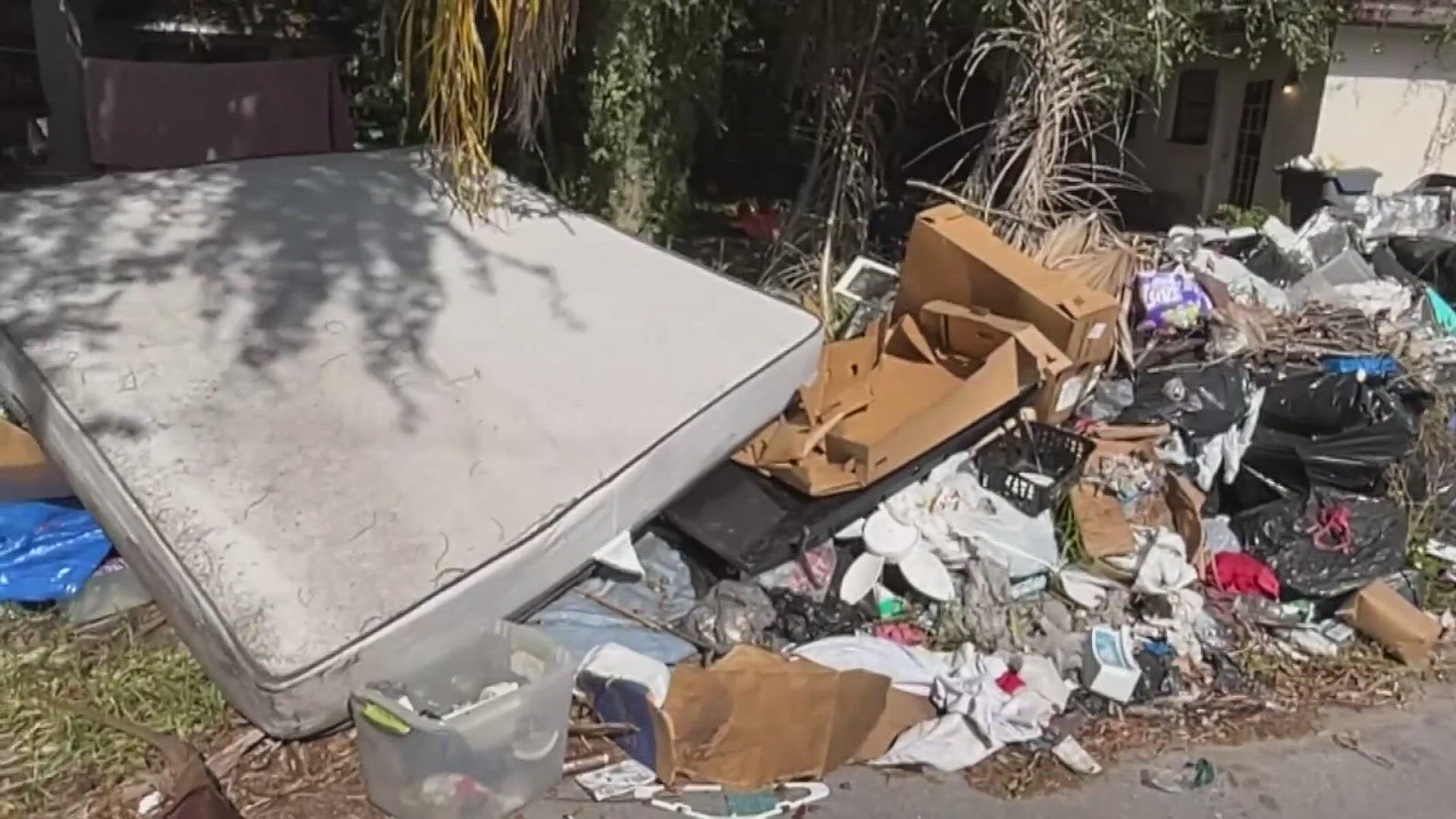ST. PETERSBURG, Fla. — It was a battle that took years to win.
Survivors of Florida's Arthur G. Dozier School for Boys in Marianna, Florida, along with a second campus in Okeechobee, are expected to receive financial compensation by next year for the decades of abuse they've endured.
The state of Florida is providing financial restitution through a $20 million compensation program after lawmakers agreed to form one this year.
In October, survivors gathered in St. Petersburg for their annual reunion. Some survivors believe this could be their last one.
There, survivors reflected on the past, the impact on the present and the hopes for the future after recounting stories of beatings, sexual violence and torture.
10 Tampa Bay spoke with five survivors who came from different places, but their paths would cross at the same cruel spot in Marianna.
Don Stratton of Gibsonton was only 13 years old when he went to Marianna. Lorenzo Killens of St. Pete was 11. Charles Robert Lynn, also of St. Pete, was 13 years old.
However, the trauma from the past has followed them their entire lives. To this day, there are horrors survivors cannot share.
"The pain lasted my entire life. I'm actually crippled from it. From the beatings that they gave us," Stratton said.
Survivors recounted receiving as many as 50 licks.
Lynn said the beatings were so bad, that sitting down for a month wasn't possible. He said he spent two years at Dozier before being ordered to go back again. That time, he said he asked the judge to bring him to Okeechobee hoping for relief.
"I jumped out the frying pan screaming to the fire," Lynn said. "It was no different. Sexual assault, brutality, unnecessary whooping."
It wasn't just their own experiences of abuse, but the injustices they saw other boys go through that haunt them.
"They treated us like animals," Killens said. "Animals got more respect than we did."
Survivors said they were sent to the reform schools for offenses that would hardly require jail time today. Skipping school, smoking cigarettes and running away from home, to name a few.
James "Harley" De Nyke said he was classified as "incorrigible," leading him to Marianna at the age of 15.
The schools should have helped turn kids around but instead, they were havens of horror that left an impact.
Even after being out, the abuse kept them as prisoners tortured by their traumatic past.
De Nyke said he became an alcoholic from a young age after getting out. He'd later serve time in state prison after stealing a car as an adult, he said.
"I tried to drink everything away and didn't work. I'm 47 years sober today," he said.
Today, at least hundreds of men have come forward to recount their unjust experiences. While the abuse happened as far back as the 1960s, survivors like Ronnie Massey of Polk County remember them like it was just a few days ago.
"I was 15 when I went in, and then I got beat 50 licks," Massey said. "I broke my muscle and leg while I was there."
Massey said it still chokes him up to remember the screams of other boys who were being beaten.
It would be decades later before an investigation into the abuse forced the closure of the schools in 2011. In 2017, the state apologized to survivors for the abuses they endured.
For more than 15 years, the survivors who call themselves "The White House Boys" fought for compensation.
However, year after year, efforts to get a bill passed would fail.
"We're old men now, but think about it if you was a 12-year-old and was beaten by somebody the way I was beaten," survivor Charlie Fudge told the House Appropriations Committee in February.
Survivors said it's not about the money but about what's just.
“In the Marine Core, they taught me to defend myself. I couldn’t defend myself at Dozier," survivor Ralph Freeman said to the committee.
While the money will help, the dollars can never buy survivors peace.
"That pain never goes away. You live with it every day and at the end, you’ll die with it," De Nyke said.
However, there's also the pain of knowing survivors who are no longer alive nor their families will ever get the chance to have financial restitution.
The White House Boys pushed lawmakers to come to a consensus seeing that more survivors were dying.
Fudge told lawmakers in February that out of the 500 survivors within the group, there cannot be more than 100 survivors alive today. COVID-19 took the lives of some survivors, Fudge said.
The reunions serve not only as a time to reconnect, but also catch up and share the good things including the purpose survivors have found.
For Massey, he said he became a new person at the age of 23 through his faith. Today, in his seventies, he's been ministering ever since the age of 25.
"We've been in about 46 states and six countries telling people about Jesus," Massey said. "I thank God that I did make it out."
Faith became a calling, too, to Lynn, now known as Deacon Lynn at Bethlehem Missionary Baptist Church in St. Pete.
"I thank the good Lord for life, health and strength," Lynn said. "They told me at a young age that I would not live to get 21. I'm 70 now."
Lynn and Killens are also friends who knew each other growing up.
For Killens, memories of seeing other boys tortured and the threats he'd receive are ingrained in his mind. He recalls the racial tensions when Jim Crow segregation laws separated white and Black boys in Marianna.
Then there are memories of the the inability to report the injustices occurring. Lynn recalled letters being torn apart if boys even spoke of the abuses that were occurring.
Like Lynn though today, Killens said he wakes up feeling blessed through faith and feels he has a purpose, including helping other survivors.
The memories so painful, Killens said this was the first reunion he had attended. At this one, he led a prayer.
"I can forgive but I can't forget how I was treated," Killens said. "I know if I put my trust in that man up there, the good heavenly father, he gonna fight this fight for me."
Survivors are showered with love at the reunion with friends and family by their side.
This reunion could be their final get-together, some said. The years are taking their toll.
"These men drove some of them [300] or 400 miles to get here," Stratton said.
Stratton, who recently overcame esophageal cancer, said he acknowledges any of his fellow survivors have passed away.
Now 80 years old, he said while the money won't take away the pain of the past, it will help others try to live the rest of their lives to the fullest.
However, that doesn't mean the legacy of what survivors have fought for will fade away.
"Somebody gonna pick that torch up and they carrying that torch," Lynn said.
And so survivors leave the reunion with shared trauma, but also renewed strength for whatever's ahead.
Over the years, at least 55 burials have been found in Marianna, said Dr. Erin Kimmerle of USF who also wrote a book dubbed "We Carry Their Bones," which details the search for truth at Dozier.
While records suggested the isolated cemetery held just 31 graves, she and her team of researchers found 55. Most of the children were Black.
To date, Kimmerle said there have been just more than 100 deaths in Marianna.
Survivors who were at the schools between 1940 and 1975 have until the end of the year to apply for financial restitution.



